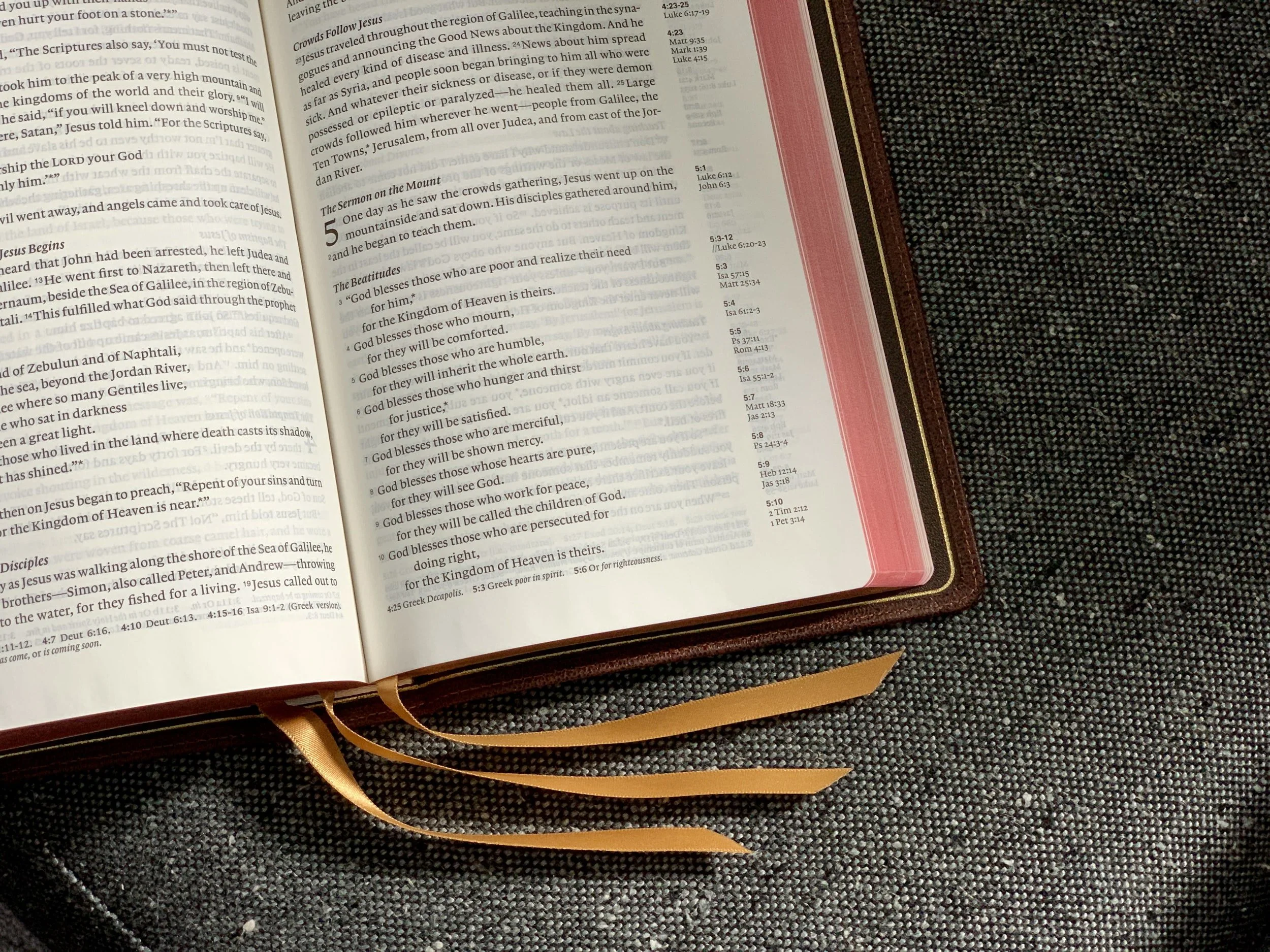During this season of deep reflection, it is important to recognise the biblical practice of lament. Sorrow, sadness, pain, grief, and suffering are part of the human experience and the pages of scripture are full of the struggles of both communities and individuals. We see this very vividly through the book of Psalms - a collection of writings that are full of honest and unfiltered conversations with God. As we follow their movement we encounter moments of incredible vulnerability, anger, protest, regret, deep sorrow, grief and mourning as well as petition, hope, trust and praise. Lamentation is therefore not only a kind of prayer that helps us express our thoughts, feelings and emotions, but also a prayer for help coming out of pain.
THE PSALMS LEAD THE WAY
The Psalms can help us as we learn to understand what it means to lament well. They offer us a helpful structure or framework as we seek to gather and express our thoughts and feelings. Perhaps this level of vulnerability and openness before God may feel uncomfortable. But God cares about our experiences and innermost thoughts and feelings. He sees them, whether we have expressed them or not. The Psalms give us confidence as we look to embrace the bold nature of lamentation.
The Psalms normally begin by addressing God directly and offering an introductory cry.
Personal and communal ‘Psalms of Lament’ normally begin by addressing God directly, offering complaint. They are not overly concerned with how a person ‘should’ feel but rather how that person is feeling. This is important to notice as our emotions will work their way out in life, so adopting this posture is a healthy way to appropriate and bring them to God.
Secondly, they offer a complaint or lament. They articulate the problem and ask the Lord for help.
The Psalmists show us that we can be honest and bold as we pray ourselves empty. We do this by offering unfiltered emotions and language. As we lament we may want to include the confusion we struggle with and the anger and frustration that we are experiencing. The sin, abuse, and brokenness that we have endured or continue to endure, and the acknowledgment of how it affected us and may continue to affect us. We can be brave and tell God how this has impacted the way we may see Him. If we feel distant - tell him. If we don’t know how we feel - tell him that too. The Psalmists also name the questions that they were holding. We too can name our questions before God.
Thirdly, they speak out a confession of trust in God through requests of intervention, praise and thanksgiving.
Once the Psalmists had thoroughly poured out their heart to God we often see them move towards a Doxology. The word doxology comes from the ancient greek meaning praise and glory. It is a form of worship added to the end of many canticles, psalms, and hymns. As the psalmist prays through his complaints, grievances, thoughts and feelings, we encounter a growing awareness of God’s presence in his lament. He moves to acknowledge and praise God for who God is and what God says about Himself. For example, “You are the God who _________.” Or “The truth is ______________.” When we have and prayed ourselves empty, and if it feel authentic and comfortable, we may want to finish our lament in this way. This is not to be forced but is rather a response to an authentic desire.
WRITING YOUR OWN LAMENT
Take some time and reflect on how the last week (or a time frame of your choice) has been for you. Make note of the predominant emotions you have been feeling during this time, in particular the more negative ones. Reflect on a particular situation or recurring theme that you know has been causing you distress, pain or anxiety and that you feel is beyond your control. Imagine that God is with you and that He has given you complete freedom to lay it all out, to complain fearlessly without judgment, in order to get it all off your chest.
With a piece of paper and pen, invite God’s presence and follow the steps outlined below.
Address and introductory cry: Identify the Lord as the person to whom you are addressing your complaint. Request for His presence as you express what is on your heart.
Complaint or Lament: Articulate the problem you are wrestling with. Detail how it is affecting you, the pain it is causing, and ask the Lord for His help.
Confession of Trust: Verbalize your trust in the Lord. Share your hopes that He will come to your aid, that He will be present with you in your situation.
Prayer for Deliverance: Request deliverance, or God’s intervention in the problem.
Praise: Offer praise and thanksgiving to God for God’s many blessings and faithfulness
Thank you to Ann Arbour Vineyard

